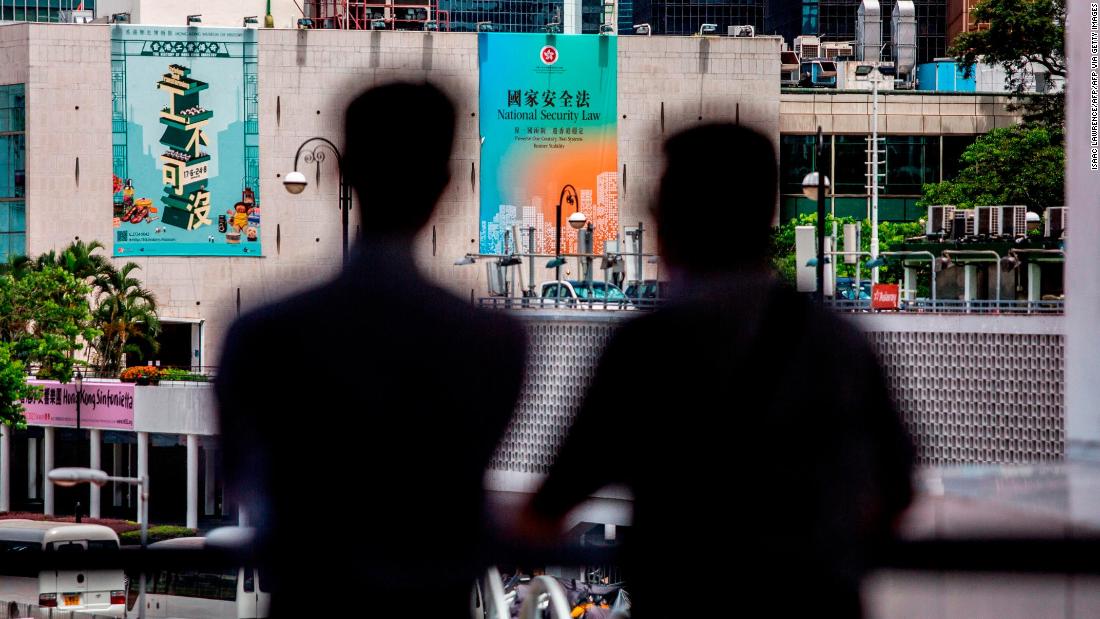
Visa restrictions will be imposed on certain Americans with “atrocious conduct related to Hong Kong,” Chinese Foreign Ministry spokesman Zhao Lijian said Monday.
He added that Washington’s attempts “to obstruct China’s legislation to safeguard national security in Hong Kong,” imposing sanctions against officials in the city and Beijing “will never succeed.”
“The national security law for Hong Kong is purely China’s internal affairs and foreign countries have no right to interfere,” said Zhao.
The National People’s Congress of China is currently in the final stages of drafting the law, the details of which have not been released, and is expected to pass it this week, perhaps even Tuesday.
When journalists asked which “American individuals” could be affected by the new visa restrictions, Zhao said, “I think these relevant people know this very well.”
Sanctions of the United States
On Friday, US Secretary of State Mike Pompeo said the United States would impose visa restrictions on current and former Chinese officials who “were responsible for disembowelling Hong Kong’s freedom” and were “responsible or complicit in undermining the Hong Kong’s high degree of autonomy. ” “
He did not name the Chinese.
“Hong Kong’s high degree of autonomy and full implementation of the Sino-British Joint Declaration, as well as respect for human rights, are of fundamental importance. The United States will continue to review its authorities to respond to these concerns,” he said. Pompeo.
Visa sanctions are not as harsh as economic sanctions, but they send a message to Beijing, and could affect the travel of children of Chinese officials, who often attend universities in the United States. These sanctions come as the relationship between the United States and China continues to crumble.
This action comes about a month after the Trump administration declared that Hong Kong no longer maintained a high degree of autonomy from China, due to Beijing’s plan to impose the new national security law on the city.
United States President Donald Trump said last month that Chinese Communist Party officials would face consequences.
“The United States will also take the necessary measures to sanction officials of the People’s Republic of China and Hong Kong, directly or indirectly involved in the erosion of Hong Kong’s autonomy and, only if you look at it, suffocating, absolutely stifling the freedom of Hong Kong. Our actions will be strong. ” Our actions will be significant, “Trump told reporters on May 30.
Law raises the alarm
It could also allow mainland China’s security services to operate in Hong Kong for the first time and give Beijing the power to override local laws, as well as send certain defendants to mainland China for trial.
Carrie Lam, the city’s executive director, said the law will guarantee “Hong Kong’s long-term prosperity and stability.”
Many are concerned that the law could be used to attack dissidents, a fear stemming from China’s judicial record.
Critics say the law could cause further self-censorship in the media, the exclusion of pro-democracy figures from the city legislature and threatening Hong Kong’s reputation as a secure base for international companies.
Surveillance of protests has been intense in recent months, with marches and protests banned for fear of coronaviruses. On Sunday, police arrested 53 protesters for illegal assembly in the Mong Kok area of the city, after a demonstration against the proposed law.
An annual anti-government rally on July 1, held every year to commemorate Hong Kong’s surrender to the Chinese government in 1997, has been denied police permission.
CNN’s Philip Wang contributed reporting.
.